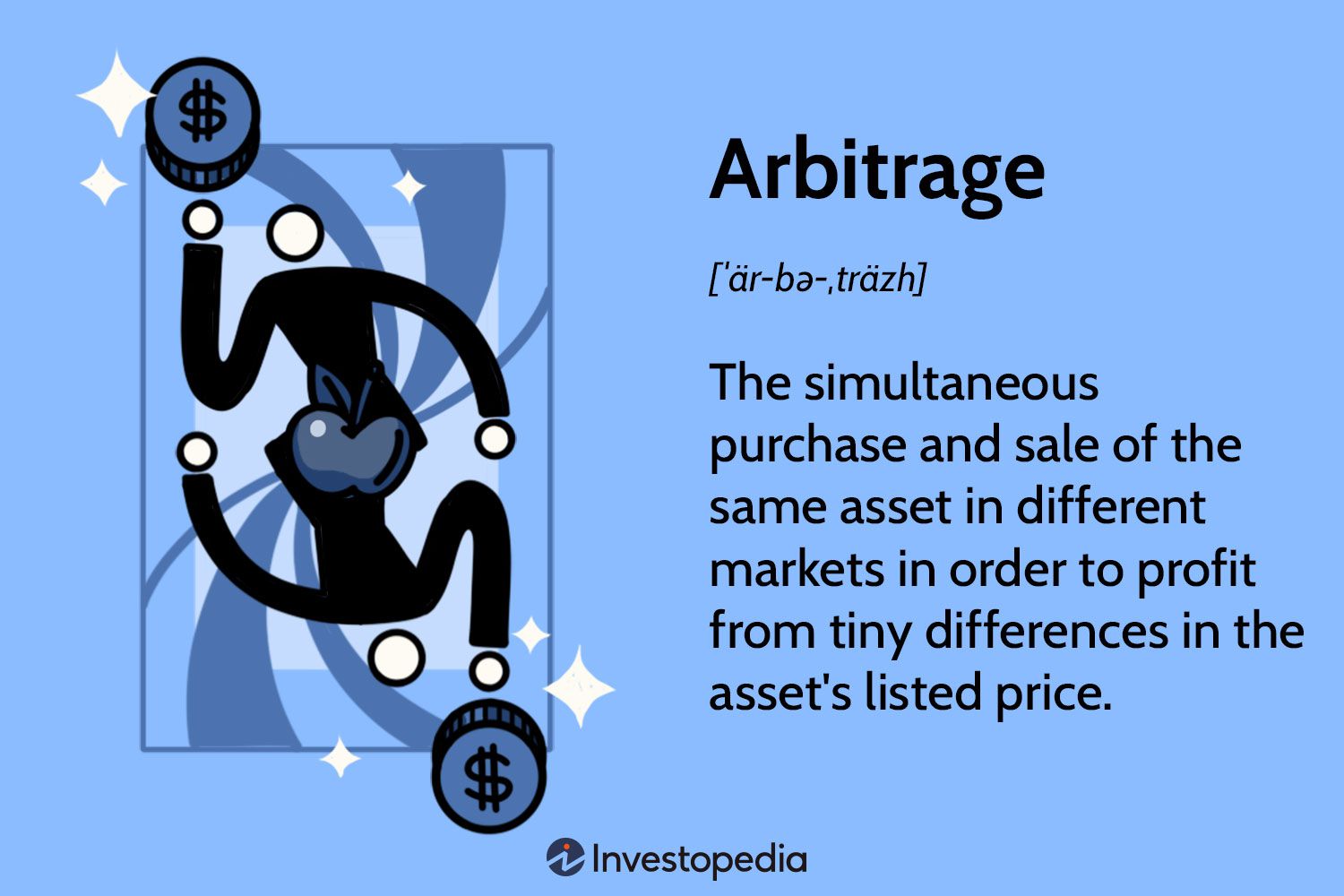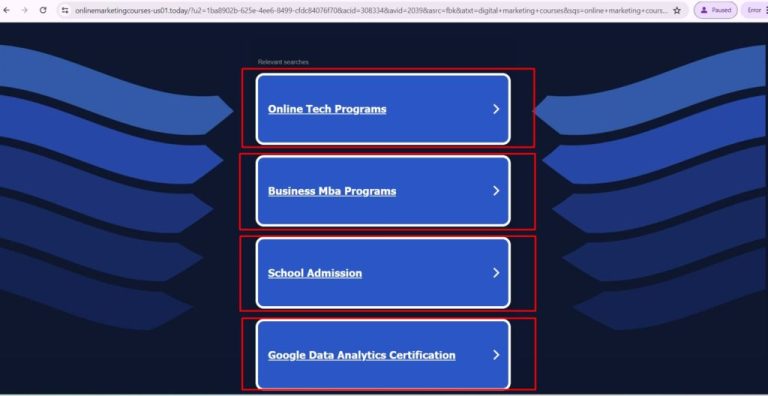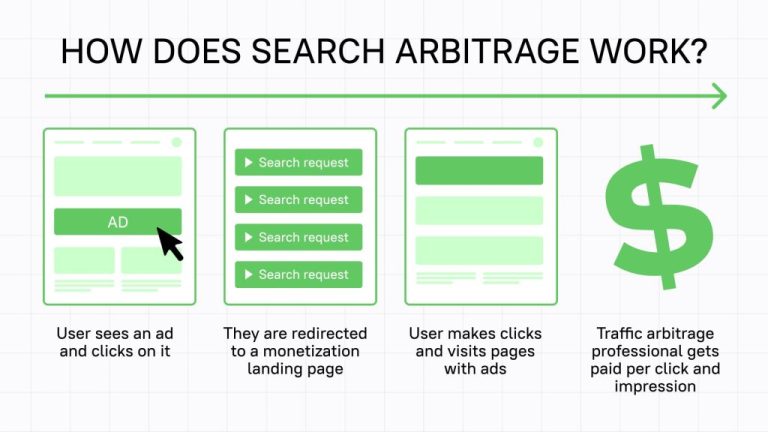Search Arbitrage Environment
In the captivating world of online advertising, search arbitrage is the lesser-known play that often surprises even seasoned experts. What if you could turn search engine listings into a revenue stream just by tweaking a few campaign parameters? This strategy, a clever dance of buying and selling web traffic, has quietly reshaped the landscape of digital marketing.
Diving deeper, the key to a successful search arbitrage environment lies in understanding both ad platforms and user behavior. Tracing back to its initial emergence, participants experimented with wordplay and timing to capture clicks profitably. Today, it’s an art backed by data-driven analytics with some players reporting ROI percentages well into triple figures. This proves its viability when executed with precision and insight.
:max_bytes(150000):strip_icc()/arbitrage-4201467-1-705aa79c9d6f4128b8eb7b9588403849.jpg)
Defining Search Arbitrage
Search arbitrage is a strategy where you buy traffic at a low cost and then redirect it to a monetized platform where it can earn more. Imagine finding a cheap source of traffic, like a search ad, and sending users to a page with ads that pay a higher rate. This process can help make a profit from the difference between what you pay and what you earn. It’s used by marketers to leverage search engines effectively. With this, creativity and strategy become essential tools.
The magic of search arbitrage lies in smart management. It requires a deep understanding of user intent and ad performance. Marketers test and tweak their strategies to boost conversions. They have to keep an eye on what users search for and how ads perform. This consistency ensures they earn more than they spend.
Many tools assist in making search arbitrage more efficient. These include analytics platforms and bid management tools. With these, marketers can interpret data, refine campaigns, and target the right audience. Continuous monitoring helps adapt to changes in trends or user behavior. Such tools can transform raw data into actionable insights.
However, this strategy doesn’t guarantee success. It’s like navigating through fluctuating markets where search trends shift. To thrive, one must always adapt to changing circumstances. Learning from failures and adjusting tactics is key. Staying updated on market patterns can offer a competitive edge.
The Mechanics of Search Arbitrage
Search arbitrage operates like a strategic puzzle. It starts with buying clicks from search engines at a low cost. Then, by redirecting this acquired traffic to well-monetized websites, a revenue cycle begins. The focus is on earning more from these visits than what was initially spent. Success depends on recognizing where user attention can be maximized.
Timing and relevance play crucial roles in this strategy. Not all clicks are equal, so understanding user interests and matching them with ads is vital. For instance, if a user searches for sneakers, showing them ads about sportswear might capture their attention. Proper targeting ensures higher engagement rates. This involves a balance of subtlety and precision.
A map of keywords guides actions in search arbitrage. Each keyword acts like a breadcrumb, leading to various search results that can be monetized differently. To optimize results, marketers may use a range of tools. These tools analyze data and refine targeting strategies. Such refinement is key to producing consistent profits.
Challenges often arise, requiring marketers to adapt. Internet trends change frequently, making ongoing learning crucial. Those who adapt quickly, leveraging fresh insights and current data, can maintain an edge. Vigilance in market analysis aids in overcoming hurdles. Staying proactive in this dynamic environment is essential for continued success.
Role of Data Analysis in Search Arbitrage
Data analysis is the engine that drives search arbitrage. By examining patterns and trends, marketers identify opportunities to enhance their strategies. It allows them to see which keywords are attracting clicks and which aren’t. Analyzing this data helps in making informed decisions quickly. Thus, with the right insights, campaigns can be tailored to meet goals efficiently.
Visualization tools are essential companions in this journey. They turn complex datasets into easy-to-understand charts and graphs. Through visual representations, marketers can spot emerging trends and gaps instantly. This quick recognition allows for precise adjustments
Moreover, successful search arbitrage needs constant monitoring. Conditions can change rapidly, and yesterday’s successful tactic might not work today. Consistent analysis provides a clearer picture of evolving customer behaviors. By staying updated, marketers can pivot their approach when necessary. This adaptability is crucial in a fast-paced online environment.
Data analysis also enhances the accuracy of target audience segmentation. By sorting and examining data, marketers can identify which groups are most likely to convert. This helps in crafting personalized strategies that resonate with users. Ultimately, effective segmentation results in improved ad performance. It’s like customizing each campaign for its audience, boosting engagement all around.
Navigating Challenges in Search Arbitrage Environment
In the dynamic world of search arbitrage, unpredictability is a constant companion. Search algorithms frequently change, affecting visibility and click costs. Competitors might also adjust their strategies, introducing unexpected shifts. These changes can swiftly turn a profitable campaign into a loss. Adapting quickly is crucial to maintaining profitability.
Budget management poses its own set of challenges. Deciding how much to invest and where requires careful consideration. Marketers often have to balance between bidding more for potential high-converting clicks and saving costs. Spending wisely ensures a good return on investment. It’s a tightrope walk where each decision can significantly impact results.
Another hurdle comes from identifying authentic traffic sources. Inaccurate or fraudulent clicks can lead to wasted spend. Reliable traffic is value you, increasing the chance of genuine conversions. This requires vigilance and regular checks are necessary to filter traffic for quality. Trustworthy analytics tools can assist in recognizing and weeding out improper sources.
Additionally, user behavior doesn’t remain static. Preferences evolve, affecting how and when ads are clicked. This unpredictability demands constant updates to ad content and targeting. Being proactive in learning and adapting ensures strategies stay relevant. Continual research on audience preferences can provide insights into shifting interests.
Lastly, technology itself can be a challenge in search arbitrage. New tools and platforms frequently emerge, each promising better accuracy or insights. Marketers need to choose wisely among these to suit their specific needs. Staying informed about technological advancements is necessary. Making well-informed choices ensures continual improvement and enhanced outcomes.
The Future of Search Arbitrage
The future of search arbitrage looks intriguing with the rise of artificial intelligence and machine learning. These technologies are paving the way for smarter, more efficient ad strategies. Automated systems can predict user behavior, adapting ads in real-time. This not only enhances relevance but also maximizes profit. Marketers with these tools can anticipate shifts before competitors.
Increasing complexity in traffic patterns adds another layer of opportunity. As users access websites through various devices, understanding this cross-platform behavior becomes essential.
- For example, analyzing mobile vs. desktop visits can offer insights into advertising effectiveness.
- Marketers can design tailored campaigns targeting specific device users.
Legal regulations and privacy concerns are becoming more prevalent in shaping the digital economy. New rules may limit how data is collected and used. Search arbitrage strategies will need to adapt to these changing standards. Navigating these laws responsibly while maintaining effectiveness will be crucial. This will demand a balance between creativity and compliance.
Another aspect to consider is the integration of virtual and augmented reality in advertising. These immersive technologies offer fresh ways to engage users. As they become more mainstream, incorporating them into search arbitrage strategies could redefine user interaction. Imagining an ad campaign for VR games allows for unique, engaging experiences. The future promises exciting possibilities for those ready to embrace change.
High-speed internet and expanding digital reach will also influence the search arbitrage field. As more people connect globally, the potential audience grows. This expansion offers a new market to tap into with localized strategies. Understanding cultural differences will be necessary for successful campaigns. The future holds vast opportunities for growth on a worldwide scale.
Key Takeaways
- Search arbitrage buys low-cost traffic, then redirects for higher earnings.
- You need to analyze user behavior to adjust profitable strategies.
- Data-driven insights help navigate bidding and market challenges.
- This strategy ensures earning more than spending on clicks.
- A successful approach demands balancing data with market trends.
Frequently Asked Questions
Understanding the nuances of search arbitrage can be complex. Here are some clarifications to common questions you might have.
1. How does search arbitrage differ from traditional advertising?
Search arbitrage and traditional advertising vary primarily in their approach to profit generation. While traditional advertising typically pays for ad placement and waits for customer action, search arbitrage actively seeks out low-cost traffic. The goal is to redirect visitors to revenue-generating ads. By doing this, search arbitrage aims to make money from the difference between traffic cost and revenue earned.
Additionally, search arbitrage relies heavily on data analysis and algorithm understanding. It’s crucial to adjust and adapt based on real-time market feedback. In contrast, traditional advertising often focuses on creating compelling messages and brand presence without immediate user feedback. Both have their merits, but they serve different strategic purposes in the marketing world.
2. Is search arbitrage legal and ethical?
Search arbitrage is legal in many jurisdictions, but its ethical considerations depend on execution. If done transparently, with clear intentions and honest redirection, it stays within ethical boundaries. Issues arise when users feel misled or misinformed during the process. Ensuring clear communication and ad relevance can maintain ethicality.
In addition, staying updated with platform policies and legal guidelines is essential. Different regions may have-specific rules about online advertising practices. By maintaining transparency and adhering to policies, practitioners can ensure their operations remain both legal and ethical in different markets.
3. What tools can help streamline search arbitrage?
Several tools can assist in optimizing search arbitrage, providing analytics, insights, and automation. Platforms like Google Ads and Bing Ads offer crucial data for better targeting. Tools such as SEMrush or Ahrefs help with keyword analysis and competitor insights. They ensure accurate bidding and enhance overall performance.
Automation tools can further streamline processes, making campaign management more efficient. By using such tools, you can save time on repetitive tasks, allowing focus on strategy and optimization. Ultimately, the right set of tools can greatly improve the effectiveness and profitability of search arbitrage endeavors.
4. How do you measure success in search arbitrage?
Measuring success in search arbitrage involves tracking various key performance indicators (KPIs). Common metrics include click-through rate (CTR), cost per click (CPC), and return on investment (ROI). Monitoring these KPIs ensures your campaigns are profitable and efficient. Adjustments can be made when metrics fall below expectations.
Utilizing analytics platforms helps gather reliable data to evaluate these metrics effectively. By analyzing this data, potential issues or areas of improvement become evident. With this insight, strategies can be fine-tuned for better performance. Consistent monitoring allows for timely adaptations to market changes.
5. Can beginners succeed in search arbitrage?
Beginners can certainly succeed in search arbitrage with proper guidance and resources. Starting off with smaller campaigns can help gain experience and understand market dynamics. Joining online courses or forums can provide valuable insights and tips from experienced marketers. Patience and persistence are essential as results may not be immediate.
As beginners accumulate knowledge, they can explore advanced strategies and tools to enhance their campaigns. Building a network within the community can also offer support and shared learning experiences. Over time, with dedication and continuous learning, even newcomers can see success in this field.
Conclusion
As you delve deeper into search arbitrage, remember that its success lies in adaptability and insight. You continuously analyze data and adjust strategies based on real-world feedback. This dynamic field requires you to stay informed, blending creativity with analytics for optimal outcomes. By doing so, you position yourself to navigate challenges effectively.
In the ever-evolving digital landscape, search arbitrage offers exciting opportunities for those willing to explore. With the right tools and a clear ethical approach, you can turn challenges into growth avenues. As you refine your techniques, embracing new technologies and trends ensures sustained success. Ultimately, your journey in search arbitrage is one of learning and innovation.






